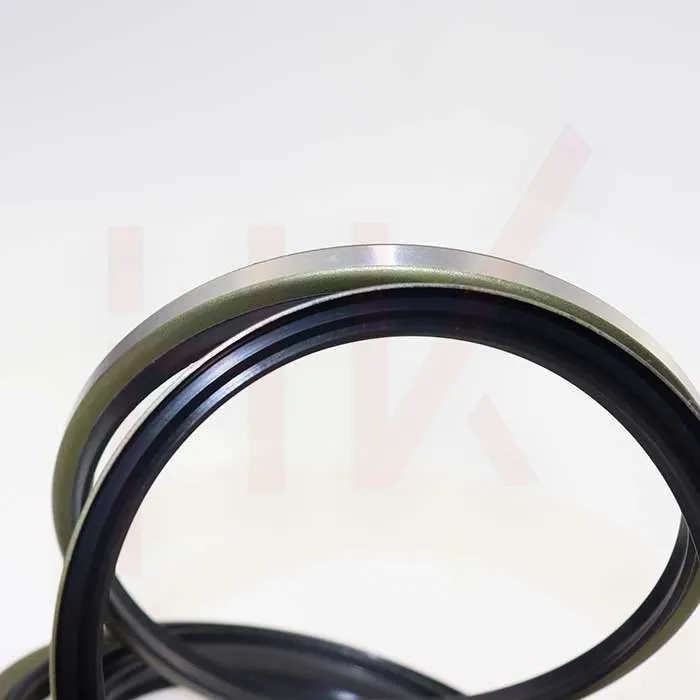जुलै . 30, 2024 14:04 Back to list
Exploring the Importance of Oil Seals in Hydraulic Systems for Enhanced Performance and Durability
Understanding Oil Seal Hydraulics Function, Types, and Applications
Oil seals are critical components in hydraulic systems, serving the essential function of preventing the leakage of fluids and protecting against the ingress of contaminants. A well-designed oil seal ensures that hydraulic machinery operates efficiently, reliably, and with minimal maintenance.
What is an Oil Seal?
An oil seal, also known as a fluid seal or rotary seal, is a device utilized to contain lubricants within a specific area while preventing external contaminants from entering. It typically consists of a flexible elastomeric sealing lip, a metal casing, and sometimes additional features such as spring-loaded seals for enhanced performance. In hydraulic applications, oil seals are vital as they maintain pressure and ensure the effective functioning of hydraulic systems.
Types of Oil Seals
There are several types of oil seals used in hydraulic applications, each designed for specific conditions and requirements
1. Lip Seals The most common type, featuring a flexible lip that presses against the rotating shaft. Lip seals are suitable for numerous applications due to their versatility and effectiveness in preventing leakage.
2. Flat Seals These seals create a barrier by providing a flat surface that sits against another surface. Flat seals are often found in applications where the pressure is not excessively high.
3. PTFE Seals Made from polytetrafluoroethylene (PTFE), these seals boast high chemical resistance and can operate at elevated temperatures. They are particularly useful in aggressive hydraulic fluids and applications.
4. Spring-loaded Seals Featuring a spring mechanism, these seals exert continuous pressure on the lip, which ensures a tighter fit and improves sealing performance, especially in fluctuating pressure conditions.
Key Features and Materials
Oil seals are constructed from various materials, including nitrile, silicone, and polyurethane, chosen according to their application. Nitrile rubber is widely used due to its excellent resistance to petroleum-based oils and fuels, making it ideal for hydraulic systems. Silicone seals offer superior high-temperature resistance, while polyurethane seals provide durability in abrasive environments.
oil seal hydraulic

Importance of Oil Seals in Hydraulics
The functionality of hydraulic systems heavily relies on oil seals
. They play a pivotal role in- Preventing leakage By containing hydraulic fluids, oil seals reduce fluid loss, ensuring that systems operate efficiently and longer without the need for frequent fluid refills.
- Protecting against contaminants By sealing out dirt, dust, and moisture, oil seals protect the internal components of hydraulic systems from wear and tear, significantly enhancing their longevity.
- Maintaining pressure Proper sealing is essential for maintaining system pressure, which directly affects the performance and response time of hydraulic machinery.
Applications of Oil Seals in Hydraulic Systems
Oil seals are commonly found in various hydraulic applications, including
- Hydraulic pumps and motors Where they ensure efficient lubrication and prevent leaks that can lead to performance degradation.
- Cylinders In hydraulic cylinders, oil seals are crucial for maintaining pressure and preventing the escape of hydraulic fluid while allowing the cylinder shaft to move.
- Heavy machinery Equipment such as excavators, cranes, and forklifts rely on robust oil seals for optimal performance and durability under demanding conditions.
Conclusion
In summary, oil seals are indispensable components in hydraulic systems, serving critical functions that ensure system efficiency, protect against contamination, and maintain pressure. Understanding the types and materials of oil seals—and their specific applications—enables engineers and maintenance professionals to select the right products for their hydraulic systems, ultimately leading to enhanced performance and extended equipment life. As hydraulic technologies continue to evolve, the importance of high-quality oil seals will only grow, solidifying their role in the future of hydraulic engineering.
-
The Trans-formative Journey of Wheel Hub Oil Seals
NewsJun.06,2025
-
Graphene-Enhanced Oil Seals: Revolutionizing High-Pressure Oil Sealing
NewsJun.06,2025
-
Future of Hydraulic Sealing: Advanced Intelligent TCN Oil Seals
NewsJun.06,2025
-
Don’t Let a Broken TCV Oil Seal Ruin Your Day
NewsJun.06,2025
-
Bio-Inspired Dust Seals for Better Sealing Performance
NewsJun.06,2025
-
Biodegradable and Sustainable Hydraulic Seal Materials
NewsJun.06,2025
-
Top Oil Seal Solutions for Your Industrial Needs
NewsMay.22,2025
Products categories
















